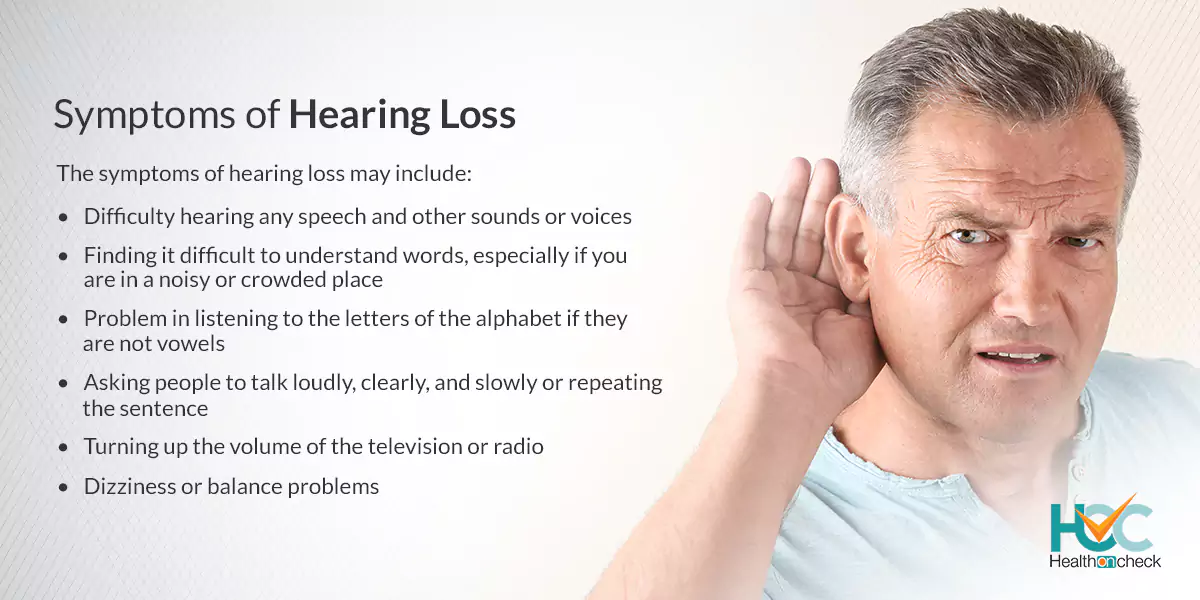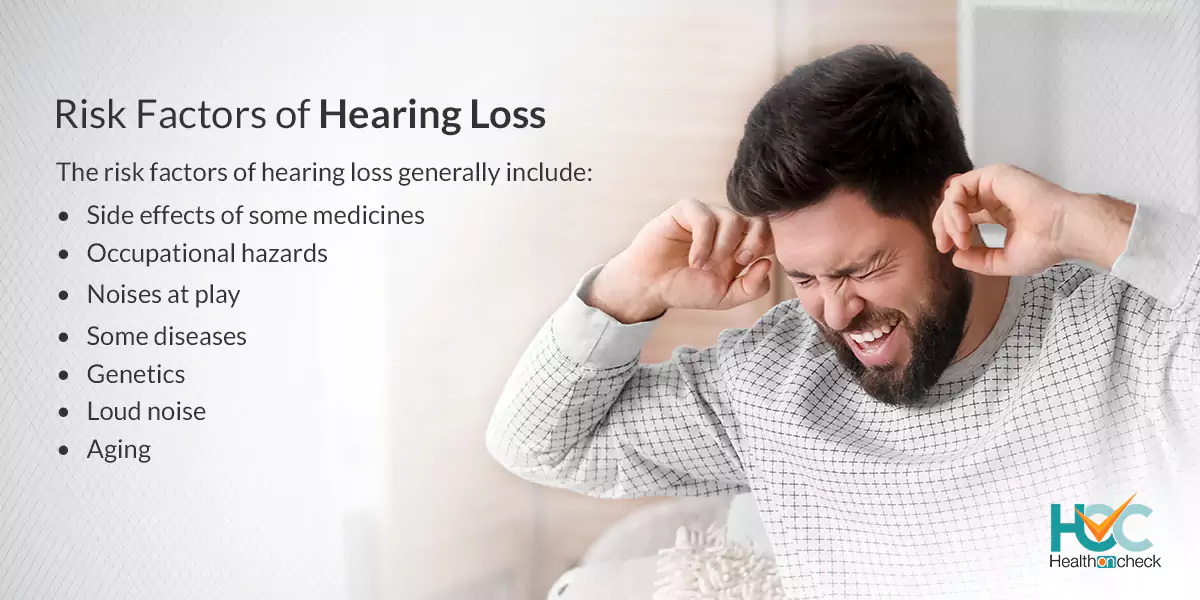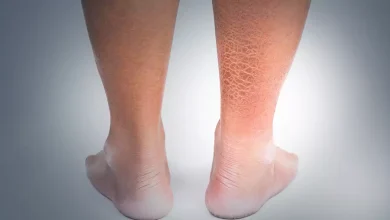All about Hearing Loss?

What is Hearing Loss?
Hearing Loss means difficulty in hearing voices which makes it difficult for the person with hearing loss to participate in conversations or understand what others are talking about. If you are suffering from hearing loss, then it will be difficult for you to understand what people are saying on television or you might not be able to talk on the telephone as you won’t be able to understand what the person on the other end of the telephone is saying. The problem of hearing loss develops when you get older but it’s not necessary and people of any age can suffer from the problem of hearing loss.
What are the Types of Hearing Loss?
There are thre:e types of hearing loss including:
Conductive: In this type of hearing loss, your outer ear (ear canal) or middle ear (the area that contains three tiny ear bones: incus, stapes, and malleolus) is blocked by something because of which sound can’t be passed through your ears. The reasons for this blockage may include fluid in the ear, earwax, or an ear infection. The loud noise might sound dull, and you may not be able to hear or find it hard to hear soft sounds. Medications or surgery can treat this type of hearing loss.
Sensorineural: Here the inner ear (cochlea) or auditory nerve is affected by hearing loss. Sensorineural hearing loss is mostly caused because of age, loud noises, or some kind of disease. Children are at more risk of this type of hearing loss because of congenital issues which are present at birth. Other causes include injury in the head, infections, or some kind of trauma during childbirth and it’s mostly permanent. Hearing aids and hearing assistive devices can be helpful to minimise hearing loss.
Mixed: As the name suggests, mixed hearing loss has symptoms of both conductive and sensorineural hearing loss. It may occur due to an infection, or injury in the head or it can be inherited also. Treatment for mixed hearing loss includes treatments for both conductive and sensorineural hearing loss.

What are the Symptoms of Hearing Loss?
The symptoms of hearing loss may include:
- Difficulty hearing any speech and other sounds or voices.
- Finding it difficult to understand words, especially if you are in a noisy or crowded place.
- Problem in listening to the letters of the alphabet if they are not vowels.
- Asking people to talk loudly, clearly, and slowly or repeating the sentence.
- Turning up the volume of the television or radio.
- Dizziness or balance problems
- Background noise makes you bothered.
- Tinnitus which means a feeling of ringing in the ears
- Not able to hear high-pitched voices
- Earache
What are the Causes of Hearing Loss?
Hearing Loss may occur due to causes including:
The Inner ear getting damaged: Lous noise and aging might damage the nerve cells in the cochlea that transmits sound signals from the ear to the brain. If the nerve cells or hairs are damaged then they won’t be able to send electrical signals to the brain and it’s one of the causes of hearing loss.
Higher-pitched tones might sound muffled and it will be difficult for you to understand words if there is background noise.
Buildup of earwax: Over a period, the ear canal can be blocked by earwax which may avert the sound waves from passing through. Removing earwax might help to get back your hearing ability.
Ear infection or abnormal bone growths or tumors: Any kind of ear infection, abnormal bone growth near the ears, or tumors may lead to hearing loss.
Damaged eardrum: Tympanic membrane perforation commonly known as a damaged eardrum can cause hearing loss. The reasons behind a damaged eardrum can be loud noise blasts, uncertain changes in pressure, infection, and inserting an object in the eardrum with an object that can cause a damaged eardrum.

What are the Risk Factors of Hearing Loss?
The risk factors of hearing loss generally include:
Aging: With passing the inner ear breaks down. Older people are more prone to hearing loss than adults.
Loud noise: The cells of the inner ear can be damaged by loud noise.
Genetics: Hearing loss can be hereditary also where some genes might cause ear damage from sound or aging.
Occupational hazards: If you are doing a job where loud noise is persistent like construction work, farming, or factory work where machines with high sounds are used then they can result in damage inside the ear.
Noises at play: Getting suddenly exposed to high-pitched sounds like sounds from jet engines or firearms might cause instant and permanent hearing loss. Motorcycling, snowmobiling, listening to music loudly, or carpentry can also cause hearing loss.
Side effects of some medicines: Side effects of a few medicines such as sildenafil (Viagra) antibiotic gentamicin, and some medicines for treating cancer, can rupture the inner ear. High doses of pain relievers, aspirin, antimalarial drugs, or loop diuretics may cause short-term hearing loss or ringing in the ears (tinnitus).
Some diseases: Diseases like diabetes or meningitis that cause high fever can damage the cochlea ( a part of the inner ear involved in hearing)
What are the Complications of Hearing Loss?
Hearing loss can make life difficult and unpleasant. People with hearing loss might suffer from depression as they feel cut off from the rest of the world because it becomes difficult for them to converse with friends and family members. Hearing loss is also often associated with loss of thinking skills, a condition known as cognitive impairment. It also makes them prone to falling, injuries, and accidents.
How Hearing Loss is Diagnosed?
Hearing Loss can be diagnosed through some tests including:
Physical exam: Your doctor will look and examine your ears to detect the possible reasons for your hearing loss, like an infection or earwax.
Screening test: Here each of your ears will be covered at a time and you will be made to listen to words spoken at many volumes. It can be helpful to detect how you react to sounds at different volumes.
Tuning fork tests: Tuning forks are two-pronged, metal instruments that create sounds when they hit each other. Using tuning forks can detect hearing loss. It can also show the place of ear damage.
Audiometer tests: An audiologist ( A specialist in hearing loss), takes audiometer tests. In this test, you will be made to listen to some words and sounds directed through earphones to each ear. Each tone is repeated at low levels to detect the lowest volume of sound you can hear.
What are the Treatment Options Available for Hearing Loss?
The treatment of hearing loss depends on the cause and severity. Some general treatment options available for hearing loss include:
Hearing assist devices: There are devices available that you have to wear on or inside the ear ears which help to restore hearing by amplifying the sounds. If your hearing loss is because of some damage to the inner ear then a doctor will surgically implant cochlear implants into the inner ear.
Removing earwax: If the earwax blockage is the cause of hearing loss that can be fixed by removing the earwax by using a small tool with a loop on the end or suction.
Surgery: In some cases, surgery is needed to treat hearing loss. If there is fluid in the ear which is causing infection then your doctor will insert small tubes into your ear that help to drain the fluid from the ear.
Medications: If an infection is causing a hearing loss problem, then antibiotics can be helpful to treat the infection and fix your hearing loss problem.
Cochlear implants: If regular hearing assist devices are not working then a cochlear implant can be an option. A cochlear implant is not a hearing assist device, instead, a cochlear implant is placed in the damaged areas of the inner ear and restores your hearing ability.
Living with Hearing Loss
Hearing loss can affect your daily life and make you frustrated and depressed as you miss conversations with people or hear muffled sounds. A large number of people are affected by hearing loss and you are not alone who is coping with this condition. There are devices available that can help you to hear and various treatments are available which can cure the problem of hearing loss. Share your feelings with your close friends and family members through writing and you will feel much better. A good doctor will give you the best treatment possible so that you can start hearing again and start a normal life again.
Whom to Consult?
If you feel a sudden loss of hearing, especially in one ear, then go to a doctor (an audiologist) immediately as it can be a sign of starting phase of hearing loss. Discuss with your doctor the trouble the loss of hearing is causing you. Age-related hearing loss occurs slowly so you might not notice it at first but if you feel that your hearing ability is decreasing then meet a doctor who may give you a hearing aid device that can help you to hear voices more clearly.




